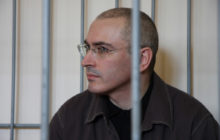Controversial Moguls in Side Program
11. October
In Japan the word tycoon refers to feudal military leaders – shoguns, who sometimes had more power than the emperor. However, more lately, west of the land of the rising sun this word is being used for rich moguls who control certain branches of economy. In former socialist countries, including Croatia, the connotations are negative and the word designates nouveau riche who gained their wealth in different suspicious ways. Anyway, these powerhouses are the topic of this year’s intriguing ZFF off-section: Tycoons: Yesterday, Today, Tomorrow, featuring five European films. The titles, selected by film critic Diana Nenadić, focus on different issues and cover different historical heritages, so not all of the titles are about modern tycoons.
The Polish film The Promised Land (1975) by the famous Andrzej Wajda focuses on a certain kind of pioneer tycoons in the early days of Polish capitalism in the 19th century. It is a story about three friends who decided to launch a modern textile factory, but after an unexpectedly great success are forced to pay a big price. The Promised Land was named the best Polish film of all times.
Local Hero (1983) is a warm and funny tale about the arrival of an oil corporation to a town in Scotland. The CEO of the oil giant comes to negotiate the purchase of the whole town so that the corporation could drill oil in the North Sea. To his surprise, the citizens agree, but the arrangement is thwarted by an old man from a beach hut. Local Hero was named one of the finest films of the eighties, and Bill Forsyth won a BAFTA for best director in 1984.
The Caiman (2006) by Italian director Nanni Moretti is a brilliant political satire about Silvio Berlusconi, foreshadowing the 2013 court verdict to this media mogul and former Italian prime minister. A trash film producer accidentally gets a screenplay, believing initially that this is a weak thriller, but after a more careful reading he realises it is Berlusconi. The film is believed to have had an impact on the parliamentary election in Italy in 2006.
Another Italian film in this selection, I Am Love (2009) by the growingly popular director Luca Guadagnino (A Bigger Splash, Call Me by Your Name), focuses on tycoons from a different angle, more accurately on the lack of love in the environment. The magnate’s wife, played by Guadagnino’s favourite actress Tilda Swinton, falls madly in love with a chef and embarks on a passionate relationship with him that will change the family forever.
The documentary film Khodorkovsky (2001) focuses on the life of the namesake Russian tycoon, who spent 10 years in prison for tax evasion and money laundering. He got out of prison in 2013, but still claims the charges against him were false, and a retribution from the Russian ruler Putin for his financing the opposition. German director Cyril Tuschi, a guest at this year’s ZFF, describes the rise of Mikhail Khodorkovsky to the status of one of the richest people in the world and his conflict with Putin. In 2011 the film was a sensation in Berlin.






















